|
Richard Hunn (1949-2006) passed away 17-years ago (as of October 1st, 2023). He was just 57-years old - having suffered from a short but devastating illness (Pancreatic Cancer). As with any good Ch'an Master - Rixhard Hunn tended to refuse any formal titles or awards - as he felt such baubles weighed-down a practitioner diverting the awareness away from the 'host' and toward the 'guest'! Besides, Charles Luk bestowed upon him the Dharma-Name of 'Wen Shu' - the name of the Bodhisattva Manjushri who appears all the way throughout the Buddhist Sutras - spreading his 'wisdom' and 'compassion' to all and sundry! After emigrating to Japan in 1991, Richard Hunn decided to carry-out a pilgrimage to Mount Fuji! For reasons only known to himself - this journey was carried-out in the depths of Winter - when the wind blew and the snow fell! When things were looking bleak - a person appeared out of nowhere and helped Richard Hunn seek-out assistance! A passing Senior Police Officer decided to take Richard into Custody whilst he investigated his background and motives. He was surprised when Richard started to converse with him in the Japanese language. When the Officer had sat and discussed Zen for an hour in a comfortable Police Station (whilst Richard was given a warm meal and drink) - The Officer ordered that Richard be driven to the peak of Mount Fuji and given a hotel room usually reserved for the Police! This was apparently out of respect for Richard's understanding of Zen - and his mastery of the Japanese language! Interestingly, around 2002 Richard visited my family home in Sutton (South London). I eventually introduced him to my Hakka Chinese grandmother - and to my astonishment he started talking to her in the Hakka language! She was taken by as much surprise as was I! Apparently, he had known a number of Hakka Chinese people at Essex University (I believe from Malaysia) who were members of the University's Chinese Buddhist Association. This ethnic Chinese group actually voted Richard to be the 'President' - the only non-Chinese person to have held that post up to that point! I believe this was during the late 1970s - when he also participated in the Multicultural Department of BBC's Pebble Mill (a general education and entertainment programme). Richard often arranged for British Buddhist content to be filmed and broadcast. He was personally responsible for a documentary covering the Thai Buddhist Temple (Buddhapadipa) situated in Wimbledon! Richard Hunn had spent an extended time sat meditating in that temple - with the Thai Head Monk suggesting that he became a Theravada Buddhist monastic! I watched this programme as a child - and only many years later would I meet Richard Hunn - and eventually take my place in the Meditation Hall of Buddhapadipa! Charles Luk had said that the empty mind ground underlies ALL circumstances an that it does not matter where we train just as long as we effectively 'look within' with a proper intensity and direction! Whilst Richard Hunn was establishing himself in Japan - he suggested that I travel to a Theravada country and train 'at the source', so-to-speak. This is how I ended-up training under Mangala Thero (in 1996) at the Ganga Ramaya Temple (in Beruwela) - situated in Sri Lanka. I have subsequently discovered that Mangala Mahathero has passed away after spending the last decade of his life living and meditating in isolation. I am told that Richard Hunn would sit 'still' for hours on end in various Zen Temples throughout the Kyoto area. Although outwardly he was practicing 'Zen' - inwardly he was practicing 'Caodong' Ch'an - the preferred lineage of Master Xu Yun (1840-1959). Although none of us know how long we will be on this Earth - we must remain vigilant and use our time effectively and productively! Not a single second must be wasted when it comes to self-cultivation! Instead of reading this board - look within! At this time of year I usually contact Richard's widow - Taeko - and offer my respects!
0 Comments
The Buddha recognised that all physical bodies are born, exist and then die. This logical observation serves as the foundation of the Buddha’s Teaching. It is an inevitable process that every living-being must experience. An individual will be born, will live their life in any number of ways, and will then pass away through natural (old age) or unnatural (illness, injury or accident, etc) causes. According to the Buddha, the state of an individual’s mind is responsible for the ‘willed’ (volitional) actions performed through the body. The frequency of these decisions can be ‘healing’ and ‘compassionate’ or ‘debilitating’ and ‘horrible’ - it all depends upon the past conditioning (karma) of the individual mind (and body). By permanently ‘stilling’ (and ‘expanding’) the mind, all karmic production is eradicated. This is a moment of karmic purification of mind and body. The ‘ridge-pole of ignorance is destroyed forever’ as the Buddha states in the Dhammapada. This is the experience of nirvana whilst still inhabiting a human-body – and when death arrives the body will ‘fall away’ - revealing the state of experiencing ‘nirvana’ without inhabiting a body. Through adhering to the Vinaya Discipline – this strict regulation of the mind and body in the environment has a beneficial effect with regards to health. This is because every rule is designed by the Buddha to ‘remove’ a particular negative (karmic) trait that causes ‘suffering’ in the mind and body of the individual and which permeates out into the environment if not ‘checked’ through the deployment of purposeful discipline. This is how the Buddha strives to reduce suffering in the mind and body of the individual (and in the world). This process is cemented by emptying the mind of greed, hatred and delusion – whilst directly ‘perceiving’ the empty essence of the perceiving (and ‘non-perceiving’) mind. This is how the Buddha strives to eradicate all ‘illnesses’ (and illness generating ‘delusion’) from the mind, body and environment through the application of a strict discipline. This is why Master Xu Yun (1840-1959) was of the opinion that the Vinaya Discipline is a vital (foundational) element of ALL genuine schools of Buddhism – and refused to follow the example of Japan in ‘abolishing’ the Vinaya Discipline as a guide for monks and nuns. If a person wants to live longer and in a healthier manner – then follow the Vinaya Discipline!
The UK has the highest Covid19 death-rate in the world! To date, over 100,000 men, women and children have died. Covid19 is no respecter of class, gender or age – we are all equally susceptible to its deadly embrace! In the Classic of Change (Yijing) - Hexagram 36 is entitled ‘明夷’ (Ming Yi). This is often translated as ‘Darkening of the Light’ or ‘Brightness Obscured’ with both renderings describing a time when the outside world (literally, figuratively – or both) – is plunged into a natural state of actual perpetual darkness (such as experienced during unusual weather conditions, volcanic activity, earthquake or Tsunami, etc), or is subject to corrupt leaders, debilitating warfare, illness, famine or drought, etc. The ‘brightness’ that denotes a progressive and vibrant society has been compromised so that normal activity in the world has become severely restricted or even non-existent due to the danger that is present. In fact, ‘明夷’ (Ming Yi) can convey a more in-depth explanation of events depicted in the situation. Indeed, ‘明’ (ming2) is constructed using the left-hand particle of ‘日’ (ri4) denoting ‘sun’ - and the right-hand particle ‘月’ (yue4) referring to the ‘Moon’. As both the ‘Sun’ and the ‘Moon’ are shining with full intensity, the Chinese ideogram means a situation of out and out ‘Brightness’. In the ancient Chinese-language texts – this ideogram referred to a time of day when the Sun is rising in the sky and the Moon has not yet disappeared – that is ‘Dawn’ - a time of great hope and inspiration for a new day ahead! This is the ‘ideal’ situation involving human society that is a ‘positive’ and ‘inspiring’ tine of unending clarity and insight – which allows great things to be achieved without end! As the ideogram ‘夷’ (yi2) is entering the situation, however, things have changed for the worse. This change is dramatic, traumatic, and out and out ‘negative’! There is no redeeming features and civilised human society has suffered a terrible set-back! The ideogram ‘夷’ (yi2) is comprised of the inner particle of ‘大’ (da4) which translates as ‘great’, ‘big’, or ‘large’, etc, literally ‘something greater than a person’. The outer ideogram is ‘弓’ (gong1) which refers to the use of a ‘bow’ as a weapon. This ‘bow’ is manufactured from a suitably ‘curved’ tree-branch which is strong and yet flexible. Due to this association, this particle can also carry the meaning of ‘bend’, ‘arch’, or ‘curve’, etc. That is, ‘something that is not straight’, or ‘departs from the norm’, etc. When placed together, ‘夷’ (yi2) can refer to a ‘great’ non-Han people who were experts in the use of the bow and arrow - and who lived to the ‘East’ of the Central Plane. In later times, this ideogram was used to refer to any disruptive population, group or tribe that continuously attacked and disruptive the everyday cultural activity of the Han people. As the ‘明夷’ (Ming Yi) Hexagram (36) uses the latter meaning of ‘interference from barbarians’ - this gives a clue when this Hexagram’s commentary was formulated (or at least ‘settled’) - which would have been after the life of Confucius (probably around 300 BCE). Confucius tends to see this tribe as ‘ancient’ rather than ‘disruptive’ - but in later times, this concept took-on the meaning of ‘obliterate’, ‘eradicate’ and ‘destroy’ through ‘violence’. As something bad has happened in society – the ‘wise-person’ turns-away from all forms of social interaction and intently ‘looks within’ to perfect his or her character. This is achieved through silent and seated meditation, interspersed with periods of study deep and profound philosophical texts that assist this process. This fits-in with the current Covid19 Crisis which involves a withdrawal from interacting within normal society to prevent the spread of the illness and keep one another (and the entirety of society) safe! Master Xu Yun (1840-1959) would have told us all to behave ourselves and behave with civility and discipline!
|
Archives
March 2024
Categories
All
|
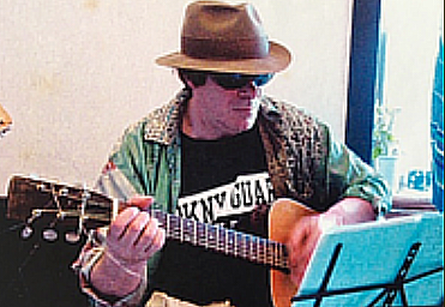
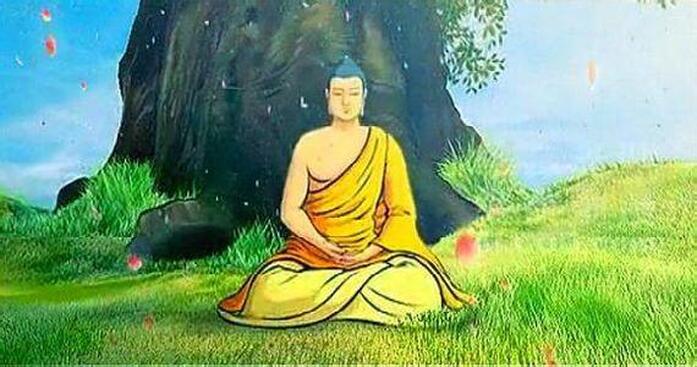
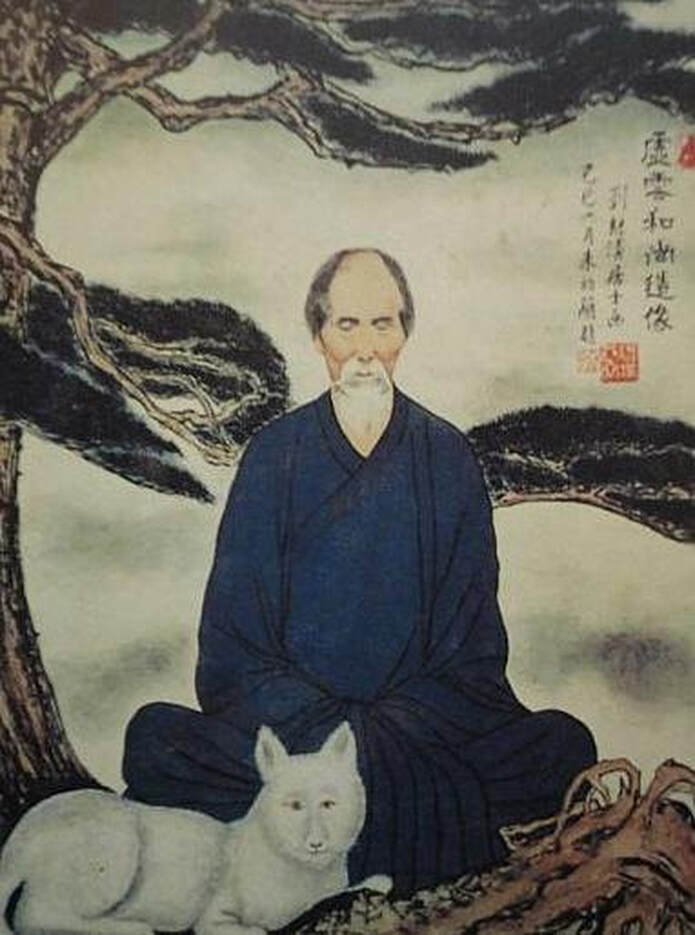
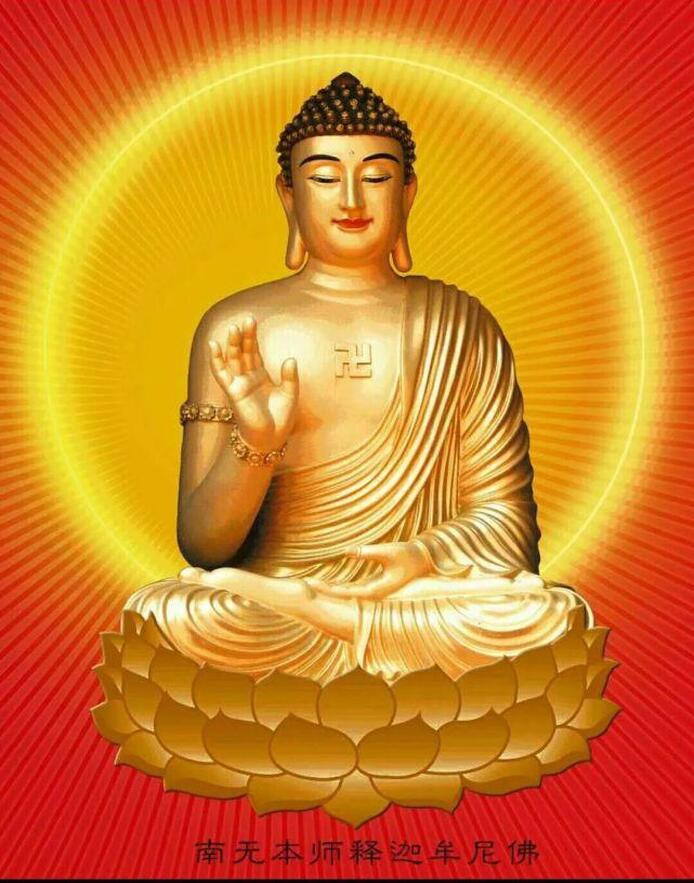
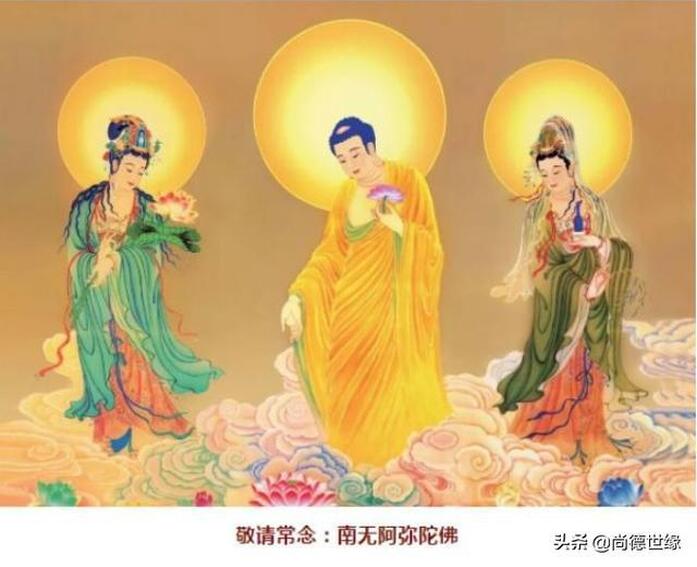
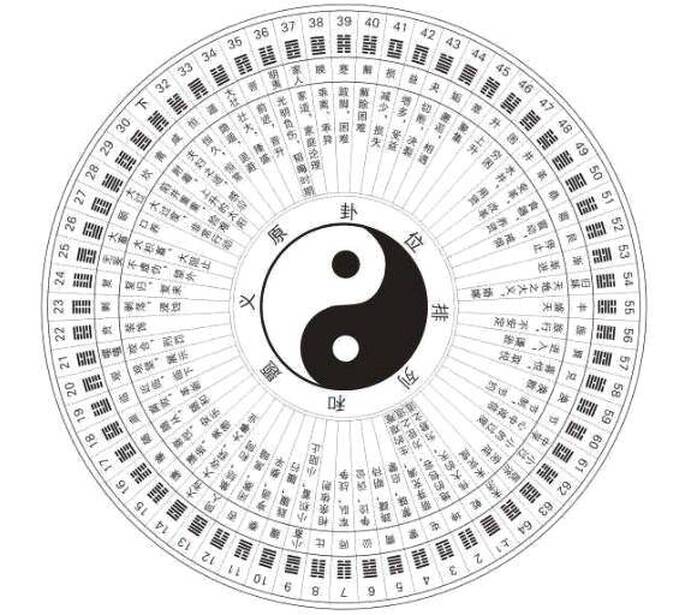
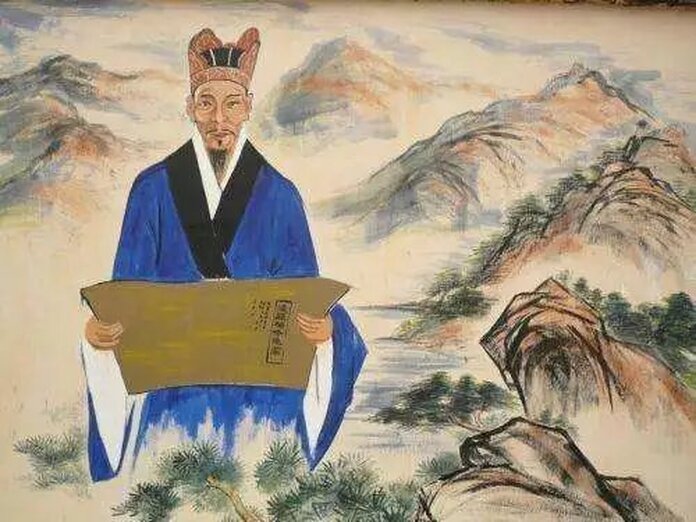
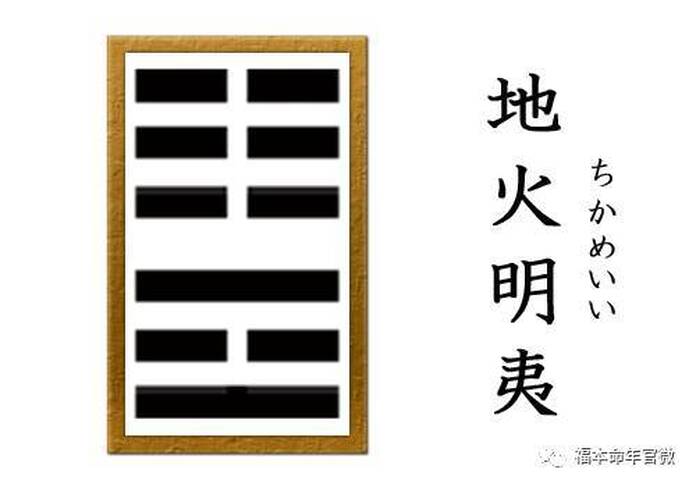
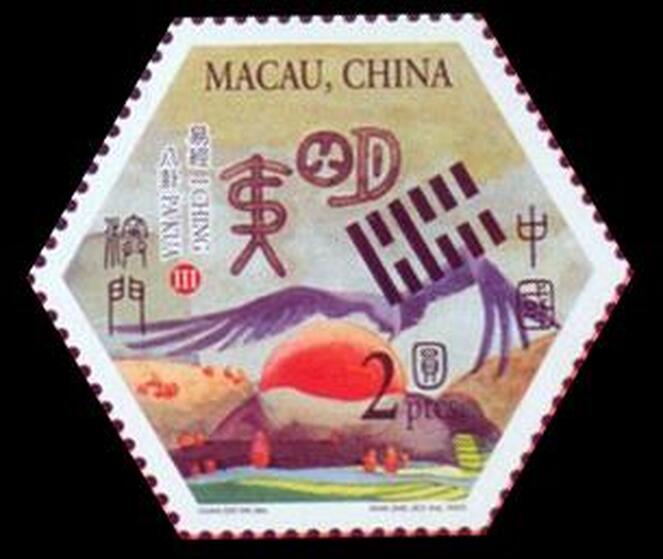
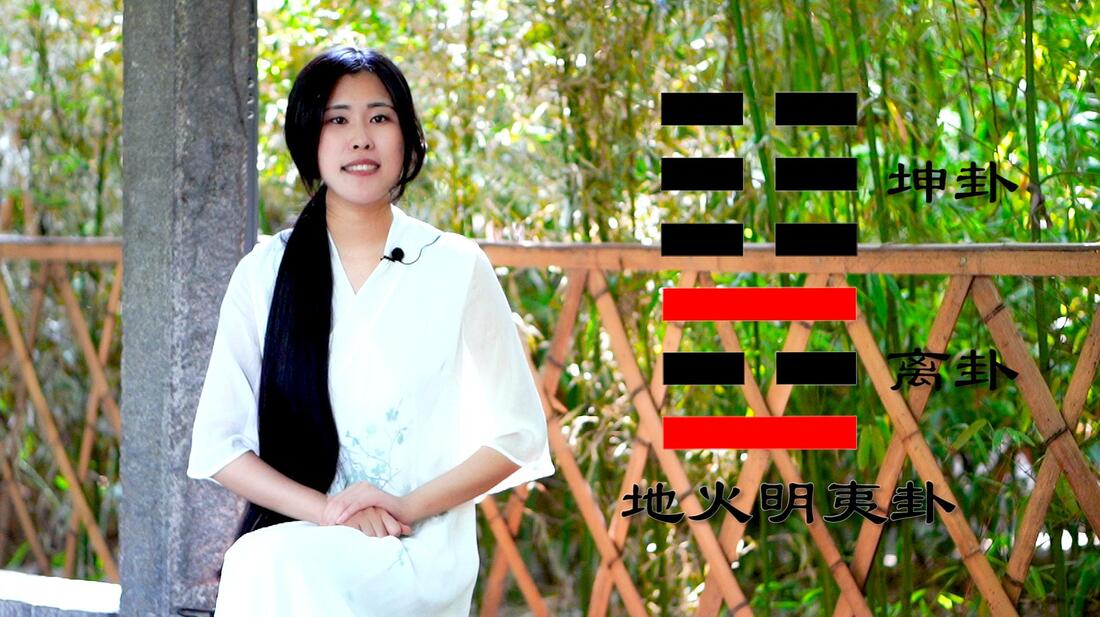
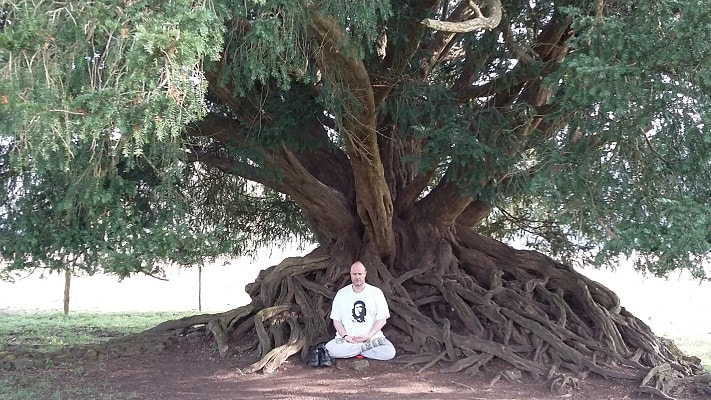
 RSS Feed
RSS Feed